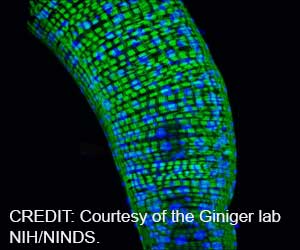Neuroscientists at University College London used state-of-the-art brain imaging, known as magnetoencephalography (MEG), along with machine learning tools, to measure and assess neural activity when the brain is consolidating its prior experiences.
The research is the first to demonstrate a link between abnormal neural replay and schizophrenia published in the journal Cell suggests that the findings might enable earlier detection of the disorder as well as provide a basis for examining novel treatment options.
Senior author Professor Ray Dolan (UCL Queen Square Institute of Neurology) said: Every human being carries around a model of the world in their mind and when confronted with new information this model is updated using a process called ‘neural replay’.
Newly developed decoding tools, based on machine learning helped to track neural replay corresponding to a task-related inference process to detect the presence of neural replay abnormalities in people with schizophrenia.
For the study, 55 participants, 28 with schizophrenia (13 unmedicated) and 27 healthy volunteers, were given an abstract rule e.g [A → B → C → D] to arrange in their minds a series of presented pairs of images into two distinct groups and sequences.
Once the participants completed the tasks, they relaxed for five minutes to make the brain to enter a rest period that replays its prior experiences using neural replay. This mechanism is important for memory consolidation as well as inference and belief formation.
At all times during the task phase and rest phase, participants were monitored by the MEG.In analyzing the MEG neural activity data, researchers used a machine learning based approach, developed by the authors and their collaborators.
The results of the study show participants with schizophrenia were less able to build a structure of the task. This behavioral impairment is directly associated with an impoverished expression of neural replay measured during a post-task rest-period.
These findings raise exciting possibility that subtle impairments in memory replay might result in alterations in memory consolidation and belief formation that explain previously mysterious aspects of schizophrenia.
This study opens up exciting new research avenues that apply similar imaging techniques across a range of mental health conditions with the aim of developing better early assessments and more targeted treatment tools.
Source: Medindia



